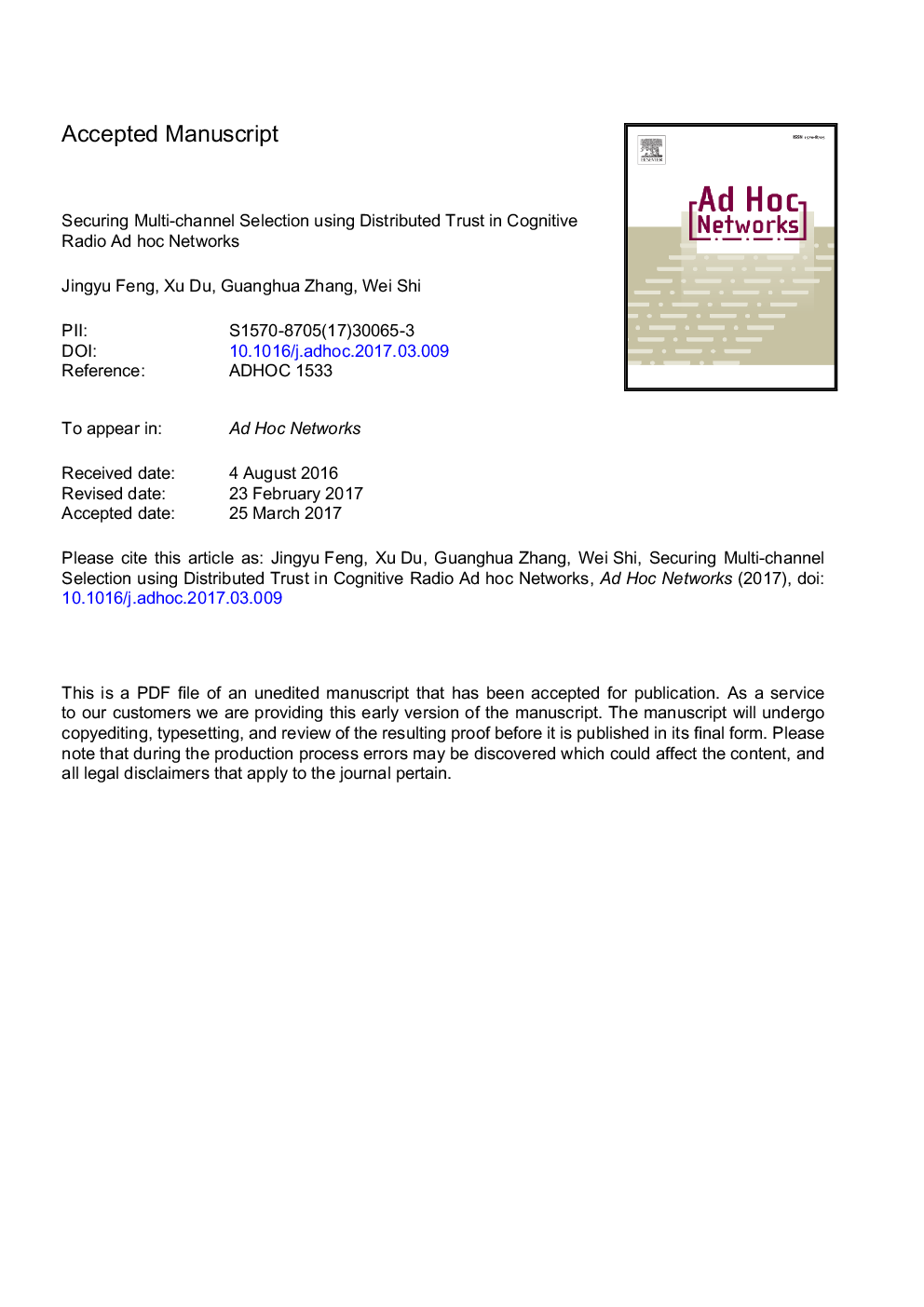ترجمه فارسی عنوان مقاله
تأمین انتخاب چند کاناله با استفاده از اعتماد توزیع شده به شبکه های ویژه رادیویی شناختی
عنوان انگلیسی
Securing multi-channel selection using distributed trust in cognitive radio ad hoc networks
| کد مقاله | سال انتشار | تعداد صفحات مقاله انگلیسی |
|---|---|---|
| 159921 | 2017 | 29 صفحه PDF |
منبع

Publisher : Elsevier - Science Direct (الزویر - ساینس دایرکت)
Journal : Ad Hoc Networks, Volume 61, June 2017, Pages 85-94
ترجمه کلمات کلیدی
رادیو شناختی، تک کاره، سنجش طیف تعاونی، چند کاناله اعتماد،
کلمات کلیدی انگلیسی
Cognitive radio; Ad hoc; Cooperative spectrum sensing; Multi-channel; Trust;

